Wow! I’ve been brought nearly to tears over and over again during these past days. It’s so inspiring! It’s such a relief! Finally, the ossified world is cracking up, the old order is crumbling. It’s hard to believe the resilience and beauty of the Egyptian revolution. Everyone knows Mubarak is going to go, either on a plane within a few more days, or maybe he’ll be dragged out and hung in Tahrir Square like Mussolini was in Italy in 1945. The role of the “street” is particularly exciting. In this era of numb isolation, clicking and petitioning and online voting, the Egyptian “Internet generation” has turned that isolation on its head, provoking a mass uprising in the streets. By retaking public space and thereby opening a much larger public sphere, long suppressed by the Egyptian police state, they’ve made an incredible breakthrough for the whole world!
But the most inspiring reports are about the direct democracy that has emerged on the barricades all over Cairo and elsewhere in Egypt. When the government facilitated prison breaks and sent their police and secret service in to loot and terrorize people, they inadvertantly inspired an intense, block-by-block self-organization that was so natural that it took only a few hours or a day to spread throughout the city. In today’s New York Times an unusually clear report corroborated the incredible footage showing on Aljazeera in which people from all walks of life are fully engaged in defending their revolution from the attacks of the paid thugs and coerced employees of the Egyptian state. So moving!
In Tahrir Square, Sharif Abdel Kouddous on Democracy Now! has been providing fantastic on-the-spot reports. Today he showed how the self-organization of the people in the Square has even led to a massive garbage recycling system, something very unusual in Egypt (or many countries of the global South), but indicating a level of self-regard, a commitment to a new kind of self-care. We might scoff at recycling as a bourgeois distraction (sure, it’s probably quite inefficient in terms of energy usage), but as a symbol of a transformed public life, it’s pretty compelling. It points to a different way of life that has the potential to go much further than any prior revolution.
Could this be the beginning of the 21st century at last? Could it be the beginning of a truly new path out of the cul-de-sacs of bourgeois democracy, brutal dictatorship, and ossified state capitalism masquerading as socialism? Probably too much to hope for, since “socialism in one country” is as impossible now as it ever was. But that’s the beauty of Egypt’s location in the heart of the transnational Arab world. Imagine if this bottom-up grassroots revolution erects new democratic forms of networked power, based on self-management and rigorous respect for individual and social rights? They’ve practically put it in motion already! And from Tunisia to Yemen, Jordan to Saudi Arabia, the people are rising. How far can it go… on Fox News they’re freaking out that it could make it to the United States! Well, of course it could! It’s the new world struggling to emerge from the dying old world… Yeah, I’m excited! Let’s go!




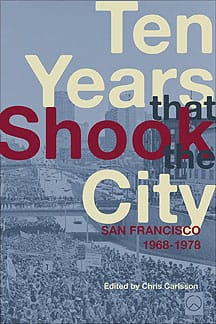


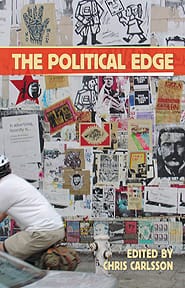
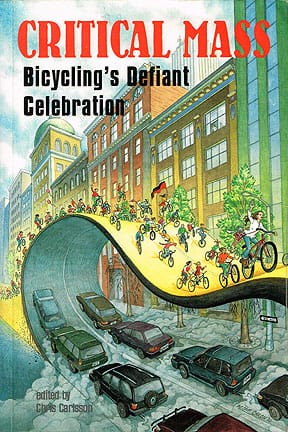
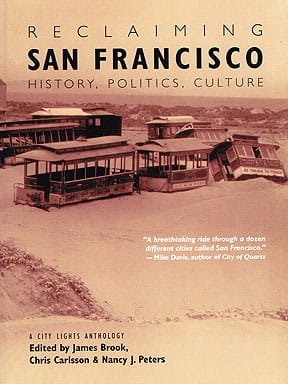
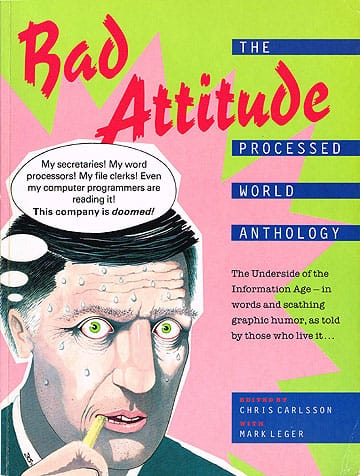

Good read, thought I’d say hi for once instead of just clicking on through the web… It’s truly amazing what’s going on down there. //Andreas from Sweden, still hoping to come visit in SF “soon”
A bit of a correction: the massive recycling situation is not at all unusual in Egypt, at least not in Cairo. There is actually a film made recently about the mostly-Coptic, desperately poor community that organizes recycling in Cairo, called “Garbage Dreams.” The community is literally backed up against an enormous cliff, living in what have been limestone quarries since the old Pharaonic dynasties. It’s a neighborhood that Sharif Abdel Kouddous was likely never exposed to, growing up as he did in a well-off family of intellectuals. They recycle something like 80% of Cairo’s waste, including the organic waste, which they feed to their pigs (which is part of what created such an enormous public health disaster when the regime had its sectarian freak-out about swine flu and ordered the slaughter of all these pigs). What is different is not that there is this huge recycling operation, but that it is not being left to the lowest of the lower classes anymore. Garbage is not being picked up by poor guys in tattered blue uniforms shuffling listlessly down the medians of streets with their rolling garbage cans, but by volunteers of at least middle class people, and that enthusiastically. Egypt has been taken back by the Egyptians, and they are once again proud of the space they occupy and they keep it clean for that reason. Until the paid thugs came in and destroyed everything, the trash that generally characterized Cairo streets was gone, and with it the usually rampant sexual harassment. All quibbling aside, you’re absolutely right, it is very much an indicator of a “transformed public life.”
From occupiedlondon blog:
“There are no cars on the streets leading off Tahrir Square and everywhere there is anti-government graffiti. My favourite was “your last flight will be to Saudi, Mubarak” and “I want to see a new president before I die”. Most shops are still closed. Families and groups investigate the area, revelling in the open streets and clean air (another by-product of the uprising, less traffic). People are running the city with oversight from tanks and army jeeps stand guard on some street corners. The soldiers I have interacted with have all been incredibly polite and efficient, but alas some of them are a bit funny about people photographing their tanks.”
this and the reports of women and men breaking up the paving stones are absolutely thrilling!
Here’s an additional link to some good reports coming from the street in Egypt:
http://www.occupiedlondon.org/cairo/
Chris,
As you know, we cannot compromise and seek reform. We must replace the existing system with some of the structures you’ve mentioned and with those that we’ve witnessed in Tunisia, Egypt and Argentina (Worker ‘owned’ businesses). Revolutions do not reform, they replace.
Yours in solidarity,
Scott